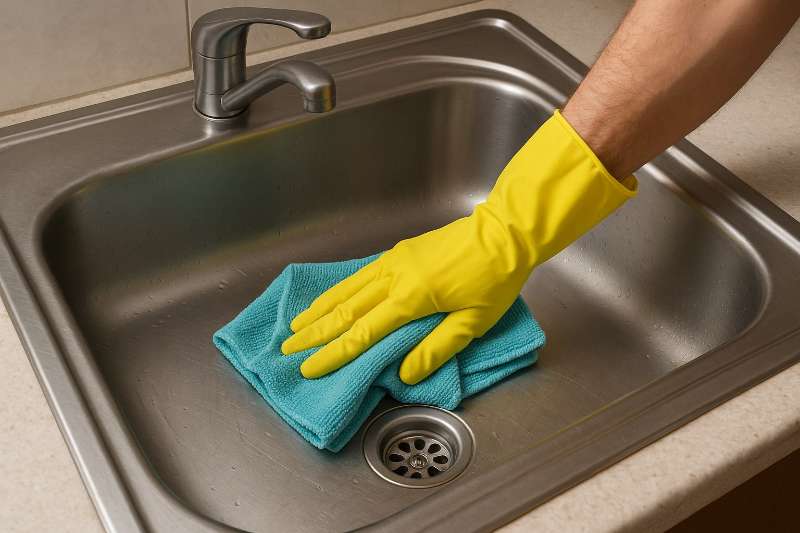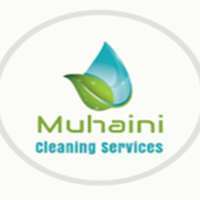Learn how to clean aluminium and stainless steel kitchen equipment without damaging it. Follow these professional steps for maintaining equipment in kitchens and bakeries effectively.
In kitchens and bakeries, aluminium and stainless steel are widely used due to their durability, ease of cleaning, and hygienic properties. However, these materials can be easily damaged if not cleaned properly, leading to scratches, stains, and even corrosion over time. Understanding the correct cleaning methods, tools, and products is crucial to maintain the appearance and functionality of your equipment. This article explains how to clean these surfaces effectively while preserving their quality, specifically for kitchen and bakery environments.
Why Aluminium and Stainless Steel Need Special Care
Aluminium and stainless steel, though tough materials, react to harsh cleaning methods and improper products.
Aluminium, for example, can oxidize when exposed to acidic or abrasive cleaners, which can dull its surface.
Stainless steel, while more resistant to corrosion, can show signs of wear if exposed to chlorine-based products or steel wool. Regular exposure to moisture, oil, and heat in commercial kitchens and bakeries makes it even more important to clean these materials properly and regularly.
The Key Areas of Concern in Kitchens and Bakeries
In a kitchen or bakery, key pieces of equipment such as countertops, sinks, fridges, dishwashers, and ovens are typically made of stainless steel.
Aluminium baking trays, mixers, proofing cabinets, and racks are also essential components in these spaces.
These surfaces are exposed to various forms of residue daily such as sweat, food particles, oils, and flour dust. which, if not properly cleaned, can lead to unsightly marks and unpleasant odours.
For instance, aluminium baking trays can accumulate layers of grease after repeated use, and stainless steel equipment can attract fingerprints, stains, and water marks. Additionally, stainless steel surfaces in sinks and countertops can accumulate bacteria and germs, especially if not dried properly after each use, leading to health risks in food preparation areas.
The Right Cleaning Methods
To clean aluminium and stainless steel equipment effectively, it’s essential to follow a proper process that avoids scratching or damaging the surfaces.
Begin by removing any loose debris or crumbs from the equipment using a dry cloth or brush. For general cleaning, a mild detergent mixed with warm water is usually sufficient for most surfaces.
It’s important to use a soft microfiber cloth or sponge to apply the cleaning solution, as abrasive materials like steel wool can scratch the surfaces.
After cleaning with a detergent, thoroughly rinse the surfaces with clean water to remove any residue from cleaning agents. Failing to do so can leave behind streaks or tarnish the material over time.
Once rinsed, immediately dry the surfaces with a soft, clean cloth to avoid water spots, which can develop into stains on both materials.
For areas that require more intensive cleaning, such as heavily greased oven hoods or heavily soiled mixer trays, using a pH-neutral degreaser or commercial stainless steel cleaner is recommended. These products are designed to break down oils and food residue without damaging the surface or its finish. For aluminium, avoid cleaners that contain acidic compounds, as they can cause discoloration or oxidation.
The Right Cleaning Tools and Products
To properly clean aluminium and stainless steel equipment without causing damage, using the right tools and cleaning products is crucial. Here are the recommended tools and cleaning products that help achieve a spotless result without harming the surface.
Recommended Cleaning Tools
- Microfiber Cloths: These are non-abrasive and effective for streak-free cleaning, helping maintain the shine of both materials without causing scratches.
- Soft Sponges: Ideal for gently cleaning aluminium and stainless steel surfaces without causing damage. Avoid using rough, abrasive sponges as they can scratch and dull the surface.
- Plastic Scrapers: Perfect for removing baked-on residue from aluminium trays or sticky grease from stainless steel. Unlike metal scrapers, plastic scrapers won’t scratch or damage the surfaces.
- Spray Bottles: These allow for even distribution of cleaning solutions, ensuring that the cleaner is applied uniformly without overuse or waste.
Recommended Cleaning Products
- pH-Neutral Detergents: These are safe for general cleaning and won’t damage finishes. They are gentle on both aluminium and stainless steel while effectively cleaning grease, food residue, and dirt.
- Baking Soda Paste: For light stains on stainless steel, baking soda paste can be a highly effective and gentle solution. When used in moderation, it helps remove stubborn marks without damaging the surface.
- White Vinegar (Diluted): White vinegar is an excellent solution for removing fingerprints, water marks, and light mineral deposits on stainless steel. It also acts as a natural disinfectant, making it a useful tool in maintaining hygiene.
- Commercial Stainless Steel Cleaner: For polishing and restoring the shine on stainless steel, a commercial stainless steel cleaner is recommended. These products are designed to remove smudges and leave a streak-free finish without causing damage.
Note: Avoid using chlorine-based cleaners, ammonia, or oven sprays on both aluminium and stainless steel. These products can damage protective layers and lead to discoloration or corrosion.
The Causes of Odour and Buildup
Odour in kitchens and bakeries often originates from food residue, grease, or damp conditions. In stainless steel surfaces, oils and food remnants can quickly turn rancid if not cleaned off regularly, causing unpleasant smells. Similarly, aluminium trays in bakeries can collect residue from flour, dough, or oils that, when not properly cleaned, lead to stale or musty smells.
These odours aren’t just unpleasant—they can contribute to an unclean environment, especially in food preparation areas. When left unchecked, they can attract bacteria, which increases the risk of cross-contamination and foodborne illnesses.
Health Risks and Cleaning Challenges
Proper cleaning of aluminium and stainless steel equipment isn’t just about maintaining appearance. If not cleaned effectively and If food particles and grease build up, they create an environment conducive to bacteria like Salmonella or E. coli, posing a health risk to anyone who comes into contact with these surfaces.
In bakeries, the accumulation of flour dust and grease on aluminium trays can also lead to the growth of mold and mildew if left unattended. This not only affects the hygiene of the kitchen but also the quality of the food being prepared.
Maintaining Equipment Long-Term
Maintaining the longevity of your kitchen and bakery equipment requires more than just daily or weekly cleaning. The key to keeping these surfaces in good condition is consistent professional kitchen and bakery cleaning that addresses not only the visible dirt but also hard-to-reach areas. Professional cleaners use specialized tools and non-abrasive techniques to ensure that each surface is thoroughly sanitized without causing any damage to the material.
Muhaini Cleaning Services offers specialized cleaning solutions for aluminium and stainless steel equipment in commercial kitchens and bakeries. Our team of experts uses the latest techniques and cleaning products to maintain your equipment’s appearance and function without causing damage.
Whether it’s your kitchen countertops, oven hoods, baking trays, or prep tables, we ensure every surface is thoroughly cleaned and sanitized. Aluminium and stainless steel are built to last, but regular cleaning ensures that they stay looking pristine and continue to perform efficiently in the long run. Moreover, professional sanitization minimizes the risk of health issues, helping to meet health and safety regulations required in commercial kitchens and bakeries.
Contact us today for a consultation and learn how Muhaini Cleaning Services can help keep your equipment spotless and hygienic.
Conclusion
Cleaning aluminium and stainless steel kitchen equipment in kitchens and bakeries requires careful attention to detail to avoid damage while ensuring hygienic surfaces. Using the right cleaning methods such as applying mild detergents with soft microfiber cloths or sponges ensures the surfaces remain pristine. Plastic scrapers help remove stubborn residue without scratching, and proper drying is essential to prevent water spots.
Choosing the right cleaning products, like pH-neutral detergents, baking soda paste, and commercial stainless steel cleaners, helps maintain the integrity of these materials. Avoiding harsh chemicals like chlorine or ammonia is crucial to prevent damage. Regular, professional cleaning ensures your kitchen and bakery equipment stays in top condition, free from germs, bacteria, and unpleasant odors, while also prolonging the lifespan of your equipment.



































